Meet our postgrads
NVT proudly hosts postgraduate students from several universities around the world. Not only does this give our students great fieldwork opportunities for their degrees but it adds important capacity on several of our long-term applied research projects. If you would like to develop a project with NVT please contact us.
For more scientific publications please visit here.
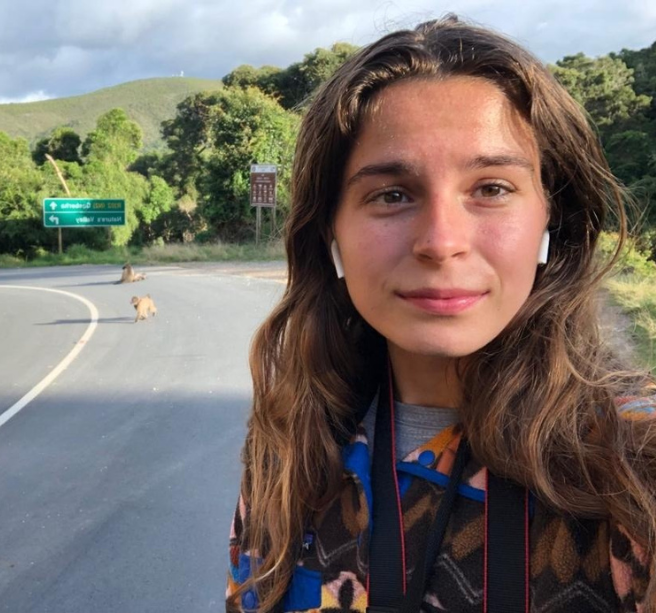
Sophie Kurilla
2023
Sophie Kurilla is studying the local baboon troop in Nature’s Valley, supervised by Dr Zarin Machanda and Dr Kris Sabbi from Tufts University in Boston, Massachusetts. For her senior honours thesis, she is researching mother-offspring dynamics with a specific lens on juvenile development and social play behaviour. Her initial efforts focused on gaining a general understanding of the baboon troop’s group composition and movements as well as learning to identify unique individuals in the group and their relationship to others.

Tiaan Botha
2022
Tiaan joined the team in January 2023 as an MSc candidate from North-West University of Potchefstroom to complete his studies on frogs in the Nature’s Valley and Salt River area.
Tiaan has a BSc in Zoology and Biochemistry, as well as a BSc Honors in Biodiversity & Conservation Ecology. During his Honours year, he quickly became aware of his veiled interest in frogs and their ecology and decided to pursue this passion further through an MSc in Biodiversity & Conservation Ecology. He became especially interested in the human-wildlife interactions between frogs and human communities and is now leading such research for his Master’s thesis until the end of 2024.
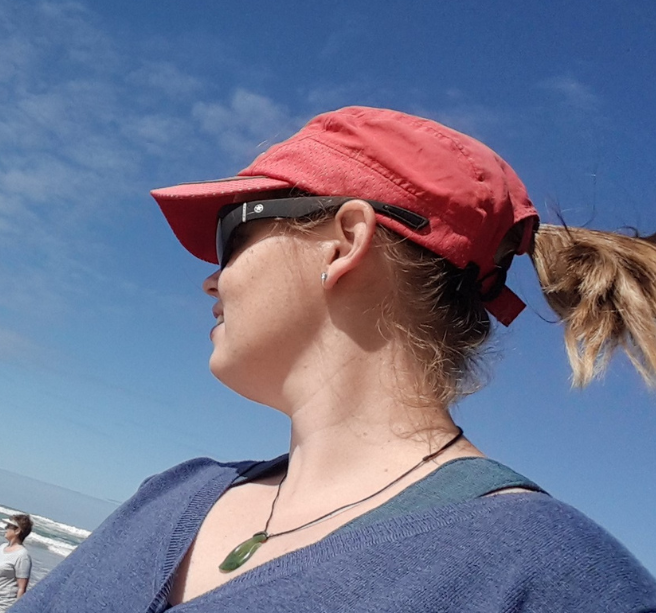
Minke Tolsma (Witteveen)
2022
Minke was born in Durban and grew up in Westville. She was a child who loved playing in the garden rather than with Barbie dolls, wore shorts rather than dresses, and spent copious hours reading. Not much has changed. She moved to Plettenberg Bay in 2013 to pursue her MSc through the University of Cape Town under Prof. Peter Ryan, co-supervised by Dr Mark Brown of Nature’s Valley Trust. Minke completed her MSc entitled: The Influence of a changing environment on the breeding biology and Diet of Kelp Gulls (Larus dominicanus vetula) in Plettenberg Bay, South Africa, and then took a break from academia. Minke is now registered at Nelson Mandela University under Prof Amanda Lombard, co-supervised by Dr Mark Brown, and Dr Gwenith Penry. Her thesis is currently titled: An Assessment of the ecological sustainability of the Boat-based whale-watching industry along the Garden Route.

Louise Bestea
2018
Louise has always been fascinated by animal behaviour and Africa and as far as she can remember she has always wanted them to be part of her life. She dreamt of later becoming a zoologist who would observe wildlife in the middle of savannah environments. After graduating with a BSc (Jean Monnet University, France) she started an MSc in ethology and ecology, which confirmed her passion for the fauna and developed her strong interest in evolution and plants, especially plant-pollinator interactions.
In 2017 she did a 2-month internship in a lab (CRCA, Toulouse, France) where she studied the gustatory and olfactory behaviour of the honeybee workers. This enriching experience enabled her to learn more about the scientific research field and gave her some self-confidence in her skills.
In order to graduate with her MSc degree, she has to do a 6-month internship and rather than returning to the lab where she had previously worked, she decided to “take the risk” and pursue her dream of doing research in Africa. After doing some research, she contacted NVT to discuss her options, and soon after, her 6-month internship at Nature’s Valley Trust was settled! A dream came true!
Here at NVT, she’s running her own project focused on the breeding system of the Watsonia knysnana, a beautiful and endemic plant species from the fynbos, aiming to determine whether sunbirds or insects are the main pollinators. Why is it relevant to study this species? Watsonia knysnana fits in with the debate on the trends in evolution: generalization or specialization? In fact, this plant shows specialized floral traits (such as the shape of the tube) for birds whereas its range of colours is more likely to attract insects. Louise really enjoys this enigma which suggests that Nature may not be as well organized as we would like to believe.
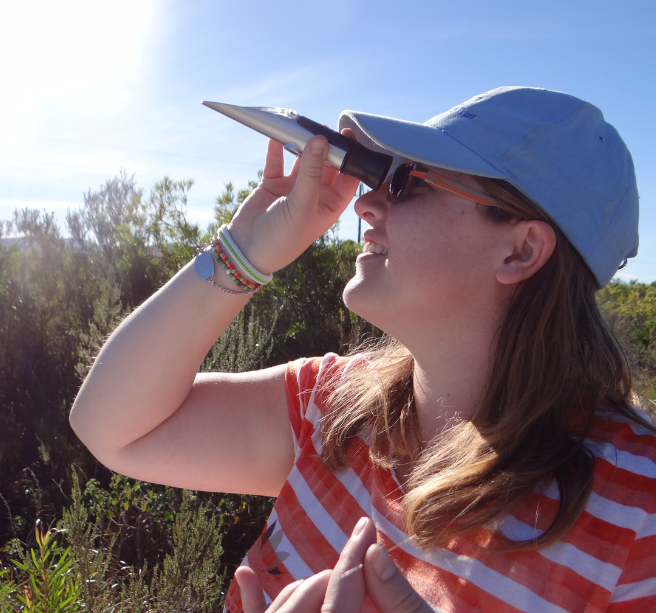
Kellyn Whitehead
2018

Jennifer Angoh
2015 - 2016
Jennifer has always been fascinated by the interaction between many of the wild species she would catch a glimpse of or even better, handle. Her passion for biodiversity and its conservation grew throughout her BSc. degree in Biology (York University, Toronto). She was lucky enough to volunteer for the Mauritian Wildlife Foundation, monitoring endemic bird populations and also worked for Wildlife Preservation Canada on a project that involved the mark-recapture of a threatened turtle species in Ontario. In July 2014, she moved to South Africa, describing it as a ‘land of contrasts and diversity’, where she was introduced to a whole new side of conservation. As an intern with SA National Parks, she raised awareness about local conservation issues among the communities living in and around the Garden Route National Park. This made her realize how important it is to give the leaders of tomorrow the knowledge to help safeguard nature for future generations.
In 2015, aspiring to become a conservationist with a wide spectrum of skills, she enrolled in the Conservation Biology Masters programme at the University of Cape Town. Part of this course entailed conducting research with the NVT. Her thesis looked at the vulnerability of plant-pollinator communities in fragmented landscapes (Supervisors: Prof Jeremy Midgley and Dr Mark Brown). In short, she studied a few species belonging to the genus, Erica. Despite being the largest genus in the Cape Floristic Region, little research has been done on the reproductive biology of ericas. The relationship between their mutualist pollinators could be at risk with more and more development underway in the region.

Tracey Meintjies
2015
Tracy has been involved in conservation (unofficially) for most of her life. Her love of nature started as a youngster growing up in a family that was constantly outdoors and involved in nature. This love continued until she had an opportunity to study nature conservation with UNISA and to make Nature conservation part of her job. She finished her diploma in 2012, her BTech in 2014 and began her MTech with NMMU-George Campus in 2015. Her research includes the Garden Route area and looks at the effectiveness of citizen science (CWAC Counts).
Determining the drivers of variability in Coordinated Waterbird Count data in the Garden Route, South Africa

Daniël Cloete
2015 - 2023
Daniël always had a love and fascination with nature even though he didn’t have much exposure to the outdoors whilst growing up. At the completion of his BSc degree in Nature Conservation at Stellenbosch University, he pursued a lifelong dream and worked at Kuzuko Contractual Park to Addo National Park as a Conservation Manager for nearly 7 years. Following that, he worked as the Programme Director of Nature’s Valley Trust for 4 years. In 2012 he was accepted into the Conservation Biology MSc class at the Percy FitzPatrick Institute of African Ornithology at the University of Cape Town. After completing his mini-thesis in 2013 that looked at the dramatic decline of the Martial Eagle in South Africa over the preceding 20 years, he and his wife pursued one of their dreams to live in the Amazon Forest of Peru where they stayed for six months. During his time there, he developed a deeper appreciation for birds and this eventually led him to contact Dr. Mark Brown to discuss the possibility of him undertaking a PhD project in Nature’s Valley. In support towards undertaking his PhD, Daniël was awarded the UCT Harry Crossley/GreenMatter Fellowship.
His PhD project, also undertaken at the Percy FitzPatrick Institute is titled – The impacts of habitat fragmentation of Tsitsikamma fynbos, South Africa, on avian nectarivore presence, abundance, and pollination. Daniel was awarded his PhD in 2023 and found that habitat fragmentation had a net negative effect in the study area, but that the impact was determined by the characteristics of the bird and plant species studied and was influenced by the habitat and bird species surrounding the study patches. Despite the overall negative fragmentation effect, even small Fynbos patches remained ecologically functional. The focus should be on conserving, expanding and merging these patches, and protecting them from external threats such as alien invasive vegetation.
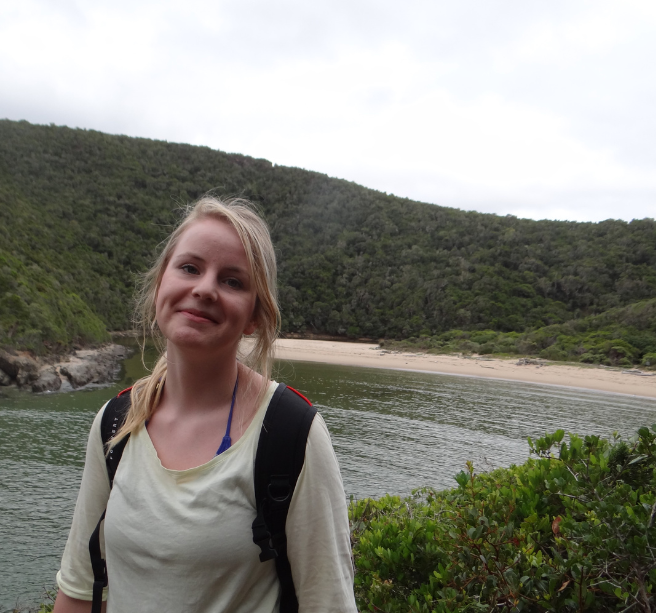
Lisa Schroeter
2015
Lisa has always held a special interest in the coastal environment. After completing a number of research experiences around the world during her studies, she decided to return to Nature’s Valley – a place, which had captured her five years earlier while she spent a gap year in the area. Equipped with the scientific knowledge and passion for conservation, Lisa joined the Nature’s Valley Trust for her Master’s thesis. Together with Mark, she developed a project, which would give revealing insights into the effects of linefishing in the area. The long days in the field with more than 400 angler interviews over 12 months, have given the NVT a fantastic dataset, which will help to develop an important education programme. Lisa has also started a citizen science project on Elasmobranch Monitoring in the Plettenberg Bay area, which will keep her involved in local research while she is continuing her ecology work abroad.

Selena Flores
2014 - present
Hailing from coastal Southern California, Selena had a great love for the beach, ocean, and nature from the start. Thus, with her passion for scientific research and conservation, studying animals that live near the sea has simply made sense. Though initially focusing on marine mammals and invertebrates, she found her love for birds quite late in her academic career, but ornithology quickly replaced all other pursuits. Since graduating with a BSc in Zoology from San Diego State University in 2007, Selena has tried her hand at many things in many places — teaching in California, seabird rehabilitation and zookeeping in Hawai’i, and working in well-known ornithology specimen collections at natural history museums in Honolulu, Los Angeles and New York City. While with the Western Snowy Plover and California Least Tern species recovery and conservation plans in Central California, she caught the field research bug, and there was no turning back.
Since arriving in South Africa in 2013, Selena has worked with penguins and other seabirds at SANCCOB, and been involved with field research for the FitzPatrick Institute of African Ornithology at the University of Cape Town, before joining the Nature’s Valley Trust in 2014. Calling upon her few years of experience with a successful shorebird and coastal management programme, Selena is now conducting her MSc research examining the effects of human activity breeding success of White-fronted Plover on the beaches of Nature’s Valley and Plettenberg Bay, a high-tourism region of South Africa’s Garden Route. Considering shorebirds like the White-fronted Plover have gone through a considerable population decline in the last 3 decades, developing an appropriate conservation management plan to balance human activity and coastal protection measures in this growing area is necessary. This project is in conjunction with Dr Peter G. Ryan and the Percy FitzPatrick Institute, a South African DST/NRF Centre of Excellence.
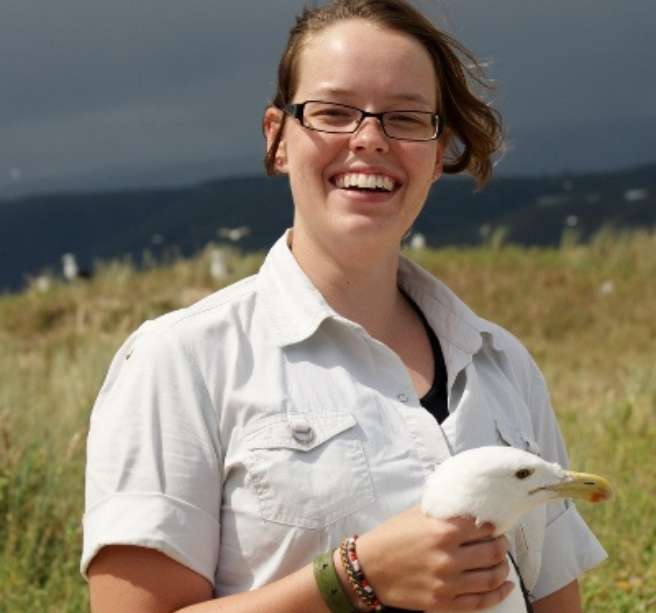
Minke Witteveen
2013 - 2014
Minke was born in Durban and grew up in Westville. She was a child who loved playing in the garden rather than with Barbie dolls, wore shorts rather than dresses, and spent copious hours reading and not much, it seems, has changed. Her love of the natural world stems from her father, who is a naturalist who knows something about everything. At the end of her final year in high school, with a love for and strength in Biology, she decided to register for a general BSc, majoring in Genetics and Zoology at the University of KwaZulu-Natal. She then continued her studies by registering for Honours in Ecological Sciences also at the University of KwaZulu-Natal. A big change for her came when she registered for a Master’s through the University of Cape Town and moved to Plettenberg Bay where Dr Mark Brown of Nature’s Valley Trust co-supervised her MSc entitled: The influence of a changing environment on the breeding biology and diet of Kelp Gulls (Larus dominicanus vetula) in Plettenberg Bay, South Africa.
Minke loved her time at NVT, describing it as:
… an amazing privilege to work with Mark and his team and be involved in many of the activities and projects that NVT runs, especially the bird ringing!

Monica Taylor
2014
Lee Raynor
2014
Lee was a fulltime school teacher in Knysna, while pursuing an MSc. degree in Environmental Management at the University of the Free-state. Lee assessed water security for the town of Sedgefield with the supervision of Dr. Mark Brown and Dr. Steve du Toit (WESSA).
